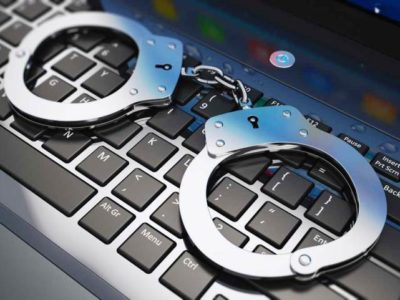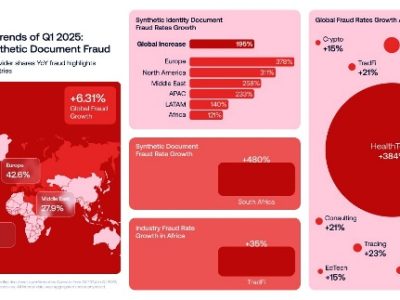Interrogating the national identity card project
eT Edge News editorial crew interrogated the national identity card project through an analysis of stakeholders’ viewpoints. Here’s the outcome. IFEANYI UZOR, MOSHOOD ABUBAKAR and MARTIN EKPEKE
Nigeria’s national identification (ID) project, entrusted to the National Identity Management Commission (NIMC), is slowly gathering momentum but not without several hanging questions. The scheme is not likely to address the controversy that confronts it before it goes into full implementation. And it is left to the project executors to prove both its critics and cynics wrong. Resurrected from the colossal failure of the initial ID scheme that gulped over N25 billion and only registered some 36 million Nigerians out of a population in excess of 150 million, the forebear of the NIMC then called the Department of National Civic Registration (DNCR) was a total disaster that was enmeshed in allegations of corruption. More than 14 million ID cards were voided by the DNCR because of inaccurate data before the DNCR itself was scrapped.
But the scheme is not novel to Nigeria. Many countries have implemented various forms of the national ID card projects and recorded a mix of success and failure. Small countries with lower population or heavily policed states or states with long rule of autocratic leadership have tended to have a higher degree of success with the National ID scheme.
But in countries with larger populations and entrenched democratic culture, the scheme has attracted controversies both in adaptation and in implementation. In some cases, they have had to be canceled entirely as is the case in the United Kingdom while in other cases, adoption and implementation have been watered down considerably in reflection of the strong opposition such schemes face. A classic case is the United States. Attempts to introduce a National ID after September 11 have been resisted.
Till date, “there is no true national identity card in the United States of America, in the sense that there is no federal agency with nationwide jurisdiction [as is the case with the NIMC] that directly issues such cards to all American citizens for mandatory regular use. All legislative attempts to create one have failed due to tenacious opposition from liberal and conservative politicians alike, who regard the national identity card as the mark of a totalitarian society.”
Why do countries implement national ID projects? As Ali M. Al-Khouri of the Emirates Identity Authority, Abu Dhabi, United Arab Emirates, noted in his commentary: “The key motives behind such initiatives is to improve the identification and authentication mechanisms in order to reduce crime, combat terrorism, eliminate identity theft, control immigration, stop benefit fraud, and provide better service to both citizens and legal immigrants.”
Like that of the UAE, Nigeria’s ID blueprint is drawn round two strategic objectives of addressing the country’s security and economical requirements. The security objective would provide the Nigerian government with an integrated population register that will become “the central reference point for the purpose of population identification.” Under this, the NIMC would have a trusted and robust identity verification infrastructure for all citizens in a way that could enhance internal security and help the government in protecting citizens against terrorism, the ever increasing crime of identity theft and other crimes against the state and individuals.
The second strategic goal of the project focuses on the economy. It is for this purpose, for instance, that the Central Bank of Nigeria (CBN) has mandated banks to require from customers their National ID numbers once the scheme is fully in operation. The scheme is designed to support the country’s digital economy by fostering a national e-authentication infrastructure to serve as the central backbone for egovernment services and e-commerce initiatives.
“Besides, having a centralised and integrated population register will assist in planning and utilising resources as it should provide timely, accurate, and statistical information for strategic decision making and long term planning with respect to education, healthcare, town planning, transport requirements, and energy among others. Another side of this objective aims to unify the existing cards in the country such as driving license, labour card, health card, and other ‘entitlement’1 cards. This will also have a profound,” to quote from Al-Khouri as it relates to Nigeria’s own ID scheme.
While all these make a strong case for a National Identity that will provide every Nigerian with a unique number (NIN) like the US Security number and the British Insurance Number, the odds are that the scheme is likely to be marred by the inherent strictures within the Nigerian socio-economic space itself. First is Nigeria’s extremely porous borders that make identification of citizens even by local officials difficult or virtually impossible. There is every likelihood that the new national ID will confer on non citizens the unique identification of citizenship (NIN) thereby undermining the original objective of the initiative.
“The scheme itself is laudable. But it is the implementation that will be tough. Nigeria’s porous landmass or geography and demography are not likely to be captured effectively by this exercise. So what is the essence of the exercise if it serves only a fraction of the population? The timing may be the problem. The huge resource committed to this could have been committed elsewhere more so as the cost of technology is dropping. Government could simply have opted for data harvesting of the plethora of data being gathered now by private sector players whether in the banks and public agencies like the communication commission at a later date to get a near accurate picture of its citizens by investing in architectures that will authenticate such data,” said Calabar based security expert Bassey Umeh.
Umeh’s viewpoint is shared by Lagos based demographer, Dr Seye Oludaisi. Nigeria’s notoriety for clumsy administrative management and high tendency for facts/figures falsification ultimately will jeopardize the fidelity of National ID scheme. But the greatest appears to be technology itself. Advancement in technology and better ways of computing biometric and asymmetric data on citizens have tended to make the use of national ID unnecessary; a more enhanced or comprehensive social security scheme would completely negate the use of National ID as the case of large population countries such as US has shown.
“The issue is not necessarily what technology can or cannot do. The issue is our own human tendencies as Nigerians. We have consistently demonstrated that uncanny capacity to falsify information and also to have a lackadaisical attitude to serious issues. I have no reason to believe that this NIMC is different from the agency it inherited,” said Oludaisi while quoting ‘Murphy’s Law or the fourth law of thermodynamics:’ “If anything can go wrong, it will.”
Hon. Abimbola Oluwafemi Daramola, the Vice Chairman, Committee for Millennium Development Goal (ACN, Ekiti) who raised the motion to probe the scheme shares this sentiment when he said “One is deeply concerned that the N30 billion approved by the Federal Executive Council to be spent on the project has neither gone through appropriation of the House nor was the parliament consulted. After the failure of an earlier and similar scheme, Nigerians, in their millions, are alarmed that the Federal Government is about to commit this huge resource to the project again.”
But some stakeholders think the positives outweigh the negatives. The former Nigeria Inspector General of Police, Hafiz. A. Ringim argued that the national ID card could act as a panacea for the high level of insecurity in the country today. He said the police will greatly benefit from the NIMS. To him, many other agencies have been requesting for verification and identity of some various individuals but because there is no database; it became very impossible to obtain any answers to their requests. “The National Identity Management System (NIM) is a very necessary and important working material that will enhance the service delivery of the Nigeria Police,” said Ringim.
Akinyemi Akinlabi further stretches Ringim’s argument in his article titled ‘Nigeria National Identification Card -Its Costs and Benefits.’ Akinlabi states: “In terms of judiciary and dispensation of justice, a national identification number would have made it easier to differentiate between Evan Enwerem and Evans Enwerem. A register of citizens would make it easier for us to confirm if our former Senate President actually had a twin brother who died during the civil war. In a similar vein, it would make it easier for the judiciary and the Deltans to differentiate between James Ibori, the governor and the one who was sentenced in the celebrated case.”
Lagos based legal practitioner, Barr. Onome Okorodudu also believes that despite the inherent imperfections, “Nigerians need a proper means of identification.” He says the creation of the NIMC and its empowerment is both proper and fitting in identifying who truly is a Nigerian. “It is mainly an issue within the confinement of the Nigerian national identity management law in Nigeria, which seeks to give information about citizens as a security measure. The Act mandating NIMC to establish, own, operate, maintain and manage the National Identity Database in Nigeria, register persons covered by the Act, assign a unique National Identification Number (NIN) and issue General Multi-Purpose Cards (GMPC), to those registered individuals, and to harmonise and integrate existing identification databases in Nigeria.”
Okorodudu said awareness on the national ID project is “unacceptably low considering the antecedent of failure the scheme already has.” Since the establishment of the NIMC Act No. 23 of 2007 not much have been done almost seven years after, noted Okorodudu. The NIMC will have to contend with issues of public trust and apathy as it embarks on this second exercise, the more reason it has to invest in massive awareness campaign to regain public confidence.
An editorial by the Daily Independent of 22 January 2009 titled: ‘The Failed National I.D. Card Scheme’ captures the sense of failure. Part of the editorial reads: “Months of mass mobilisation by government agencies followed by registration of eligible citizens and movement restrictions within a two-week period across the nation, finally yielded results that only confirmed an abiding incapacity for effective performance.” Launched with characteristic fanfare in February 2003, the National Identity Card Scheme, to which some N25 billion was committed by the regime of ex-President Olusegun Obasanjo, had virtually failed by the time the scheme was canceled to be replaced by another under the NIMC.
Umeh and Oludaisi do not expect the NIMC to do any better than the defunct DNCR. According to Oludaisi, “evidently, when you critically look at why the initial efforts failed and why the UK cancelled its own ID project you cannot but project failure even for this new scheme under the NIMC. The signs are already there.
“You the media reported last year how the Director General of the NIMC was held hostage in his office by aggrieved staff who accused him of gross mis-management. 4,029 members of staff were sacked last year by NIMC, claiming that those sacked workers lacked pre-requisite qualifications, skills and technological know-how needed by the new management to carry on responsibilities that are needed for implementing the national identity management system, managing the national identity database, issuing general multi-purpose (smart) cards and providing identity verification services in Nigeria. The National Assembly is already raising complaints of corruption and accountability. What else is proof of why things won’t work right?”
The Director General of the NIMC, Mr. Chris Onyemenam, thinks critics are unnecessarily myopic. In an interaction with the media in Lagos last December during a factory tour of Omatek Computers Ventures Plc., Onyemenam said critics need to give the scheme and its managers benefit of the doubt even while he defended the scheme as desirable to meet the country’s national goals. He assured that the NIMC was working round the errors of the past to ensure a better national ID project. His words:
“You will probably be thinking that the cynicism of the past will continue and that’s why we have embarked on an awareness campaign to enlighten people, to make them understand that what we have done in the past might have achieved limited successes but what we are doing today is different from what we did in the past. In the past the focus was on the issuance of an identification card, but today we have made it slightly different to say that what we need first and foremost is to be able to create and manage identities.”
Additional report: SEGUN ORUAME, Editor, (in Banjul, The Gambia).
Nigerians should be identified anywhere
Excerpts of media engagement with the Director General of the National Identity Management Commission, Mr. Chris Onyemenam inside the newly commissioned Omatek Factory in Lagos last December. Full interview was first published in eT Edge News January 2013.
Many Nigerians are of the view that the issuance of National Identification Numbers and cards will add no value to their lives, how will you react to that?
That’s not true! I don’t think many Nigerians think that way, you will probably be thinking that the cynicism of the past will continue and that’s why we have embarked on an awareness campaign to enlighten people, to make them understand that what we have done in the past might have achieved limited successes but what we are doing today is different from what we did in the past. In the past the focus was on the issuance of an identification card, but today we have made it slightly different to say that what we need first and foremost is to be able to create and manage identities. And one way to manage the identity is to issue the card, the card is not an end in itself but a means to an end, that end is to be able to affirm and confirm your identity that used to be what we ignored in the past. In the past we issued identification cards in the mistaken belief that once we issued a card we have been able to secure and genuinely confirm the identity of an individual, which is not true because if you go to any business center you can create a photo ID. So what we do now is to say, what are those things that will be put in place that will be accepted by everybody as a means by which you can affirm your identity? And one of the key features of that system is the use of the bio-metrics, the use of bio-metrics in that sense means that you can always confirm using the bio-metrics that the identity that has been revealed or that we have sort to confirm is exactly the identity that we want to deal with. There is this popular saying that ‘you cannot shave a man’s hair in his absence,’ so you cannot use a man’s biometrics to identify or confirm his identity in his absence. That is the duty of biometric means databases and processes, and by that token there is an element of non reaccreditation because if your fingerprint was taken from you in the process of confirming the identity that was involved in the transaction it would be impossible for you to deny because your fingerprint couldn’t have been taken in your absence, just as your hair cannot be shaved in your absence.
Trends elsewhere
Africa
Egypt
It is compulsory for all Egyptian citizens age 16 or older to possess ID card (Arabic: بطاقة تحقيق شخصية Biṭāqat taḥqīq shakhṣiyya, literally, “Personal Verification Card”). In daily colloquial speech, it is generally simply called “el-biṭāqa (“the card”). It is used for:
Opening or closing a bank account; Registering at a school or university
registering the number of a mobile or landline telephone;Interacting with most government agencies, including: Applying for or renewing a driver’s license;Applying for a passport; Applying for any social services or grants; and Registering to vote, and voting in elections.
Tunisia
Every citizen of Tunisia is expected to apply for an ID card by the age of 18; however, with the approval of a parent, a Tunisian citizen may apply for, and receive, an ID card prior to their eighteenth birthday.
The Gambia
All Gambian citizens over 18 years of age are required to hold a Gambian National Identity Card. In July 2009, a new biometric Identity card was introduced. The biometric National Identity card is one of the acceptable documents required to apply for a Gambian Driver License.
Mauritius
Mauritius requires all citizens who have reached the age of 18 to apply for a National Identity Card. The National Identity Card is one of the few accepted forms of identification, along with passports. A National Identity Card is needed to apply for a passport for all adults, and all minors must take with them the National Identity Card of a parent when applying for a passport.
South Africa
All South African citizens and permanent residents, aged 15 years or older, must possess an identity document. The South African identity document resembles a passport; however, it is not valid as a travel document or valid for use outside South Africa. Although carrying the document is not required in daily life, it is necessary to show the document or a certified copy as proof of identity when: Signing a contract, including Opening or closing a bank account; Registering at a school or university; Buying a mobile phone and registering the number; Interacting with most government agencies, including Applying for or renewing a driver’s license or firearm licence; Applying for a passport; and Registering to vote, and voting in elections.
Asia
Bahrain
Bahrain citizens have must have both an ID card called “smart card” that is recognized as an official document and can be used within the Gulf Cooperation Council and a passport that is recognized worldwide.
Bangladesh
Biometric identification has existed in Bangladesh since 2008. All Bangladeshis who are 18 years of age and older are included in a central Biometric Database, which is used by the Bangladesh Election Commission to oversee the electoral procedure in Bangladesh. All Bangladeshis are issued with an NID Card which can be used to obtain a passport, driving licence, credit card, and to register land ownership.
People’s Republic of China
The People’s Republic of China requires every citizen above the age of 16 to carry an identity card. The card is the only acceptable legal document to obtain a resident permit, employment, open bank accounts, obtain a passport, driver’s license, for application to tertiary education and technical colleges, and in security checkpoints in domestic terminals of Chinese airports.
India
Multi-purpose national identity cards, carrying 16 personal details and a unique identification number are issued to all citizens since 2007. Biometric data such as fingerprints and a digital signature are contained in a microchip embedded in the card. On it are details of the holder’s date and place of birth and a unique 16-digit National Identification Number. The card has a SCOSTA micro-processor chip with a memory of 16 KB which is secured against tampering.
Iran
Every permanent resident of Iran above the age of 15, whether a citizen or not, must hold a valid National Identity Card (Persian:کارت ملی) or at least obtain their unique National Number from any of the local Vital Records branches of the Iranian Ministry of Interior.
Japan
Japanese citizens are not required to have identification documents with them within the territory of Japan. When necessary, official documents, such as one’s Japanese driving licence, basic resident registration card, radio operator licence, social insurance card or passport are generally used and accepted.
Malaysia
In Malaysia, the MyKad is the compulsory identity document for Malaysian citizens aged 12 and above. Introduced by the National Registration Department of Malaysia on 5 September 2001 as one of four MSC Malaysia flagship applications and a replacement for the High Quality Identity Card (Kad Pengenalan Bermutu Tinggi), Malaysia became the first country in the world to use an identification card that incorporates both photo identification and fingerprint biometric data on an in-built computer chip embedded in a piece of plastic.
Europe
Belgium
In Belgium, everyone above the age of 12 is issued an identity card (carte d’identité in French, identiteitskaart in Dutch andPersonalausweis in German), and from the age of 15 carrying this card at all times is mandatory. For foreigners residing in Belgium similar cards (foreigner’s cards, vreemdelingenkaart in Dutch, carte pour étrangers in French) are issued, although they may also carry a passport, a work permit or a (temporary) residence permit. Since 2000, all newly issued Belgian identity cards have a chip (eID card).
Bulgaria
In Bulgaria, it is obligatory to possess an identity card (Bulgarian – лична карта, lichna karta) at the age of 14. Any person above 14 being checked by the police without carrying at least some form of identification is liable to a fine of 50 Bulgarian leva (about 25 Euros).
Denmark
Denmark is one of few EU countries that currently do not issue national identity cards. Danish citizens are not required by law to carry an identity card.
Germany
It is compulsory for all German citizens age 16 or older to possess either a Personalausweis (identity card) or a passport but not to carry one. While police officers and other officials have a right to demand to see one of those documents, the law does not state that one is obliged to submit the document at that very moment.
Greek
A compulsory, universal ID system based on personal ID cards has been in place in Greece since World War II. In Greece, an ID card is a citizen’s most important state document. For instance, it is required to perform banking transactions if the teller personnel is unfamiliar with the apparent account holder, to interact with the Citizen Service Bureaus (KEP), receive parcels or registered mail etc. Citizens are also required to produce their ID card at the request of law enforcement personnel.
America
Canada
In Canada, different forms of identification documentation are used, but there is no de jure national identity card. The Canadian passport is issued by the federal (national) government, and the provinces and territories issue various documents which can be used for identification purposes. The most commonly used forms of identification within Canada are the driver’s licence and health care cards issued by provincial and territorial governments
Costa Rica
Every Costa Rican citizen must carry an identity card after turning 18. The card is named Cédula de Identidad and it is issued by the local registrar’s office (Registro Civil), an office belonging to the local elections committee (Tribunal Supremo de Elecciones), which in Costa Rica has the same rank as the Supreme Court.
Mexico
Not mandatory, but needed in almost all official documents, the CURP is the standarized version of an identity document. It actually could be a printed green wallet-sized card or simply a 18-character identification key printed on a birth or death certificate.
United States
For most people, driver’s licenses issued by the respective state and territorial governments have become the de facto identity cards, and are used for many identification purposes, such as when purchasing alcohol and tobacco, opening bank accounts, and boarding planes. Individuals who do not drive are able to obtain an identification card with the same functionality from the same state agency that issues driver’s licenses.
The United States passed a bill entitled the REAL ID Act on May 11, 2005. The bill compels states to begin redesigning their driver’s licenses to comply with federal security standards by December 2009. The REAL ID Act is highly controversial, and with 25 states have approved either resolutions or binding legislation not to participate in the programme.




























